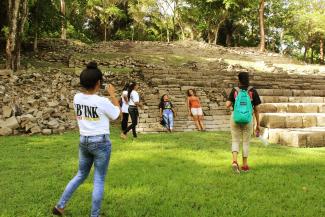
The conch shell is a tool that has been used by the Maya for generations to invite people to attend a community meeting where they may express their concerns or opinions towards any public decision. We have symbolically adapted this practice for the Sounding of the Conch Shell Youth Camp, conceived by young Maya organizers from the Julian Cho Society. The Julian Cho Society is a nongovernmental organization devoted to Indigenous rights through research, education, and advocacy in southern Belize, and also is a Keepers of the Earth Fund grant partner. We, the Maya youth organizers, namely, Elodio Rash, Seferina Miss, Florenio Xuc, Donna Makin, Rosita Kan, and Roberto Kus, were seeking to build a space for the Maya youth. Fifteen youth out of the JCS Scholarship Program were selected—nine young women and six young men, ages 14–17.
The transition of Maya knowledge from one generation to the next is of grave concern to the Maya youth, as they are beginning to realize they are losing their culture, heritage, identity, and eventually, their knowledge. The camp was created to be a space for the youth to regain their traditional knowledge, and also one where they could build their leadership capacities. The ultimate goal of the camp is to motivate youth who will contribute to the construction of peaceful, united, hard working, and self-governing Maya communities —all while being cognizant of the crucial role women play in traditional Maya governance. The initial gathering was facilitated in partnership with Community Service Learning from the University of Manitoba and the grassroots movement Aboriginal Youth Opportunities of Manitoba, Canada, and the University of Liverpool Geography Department.
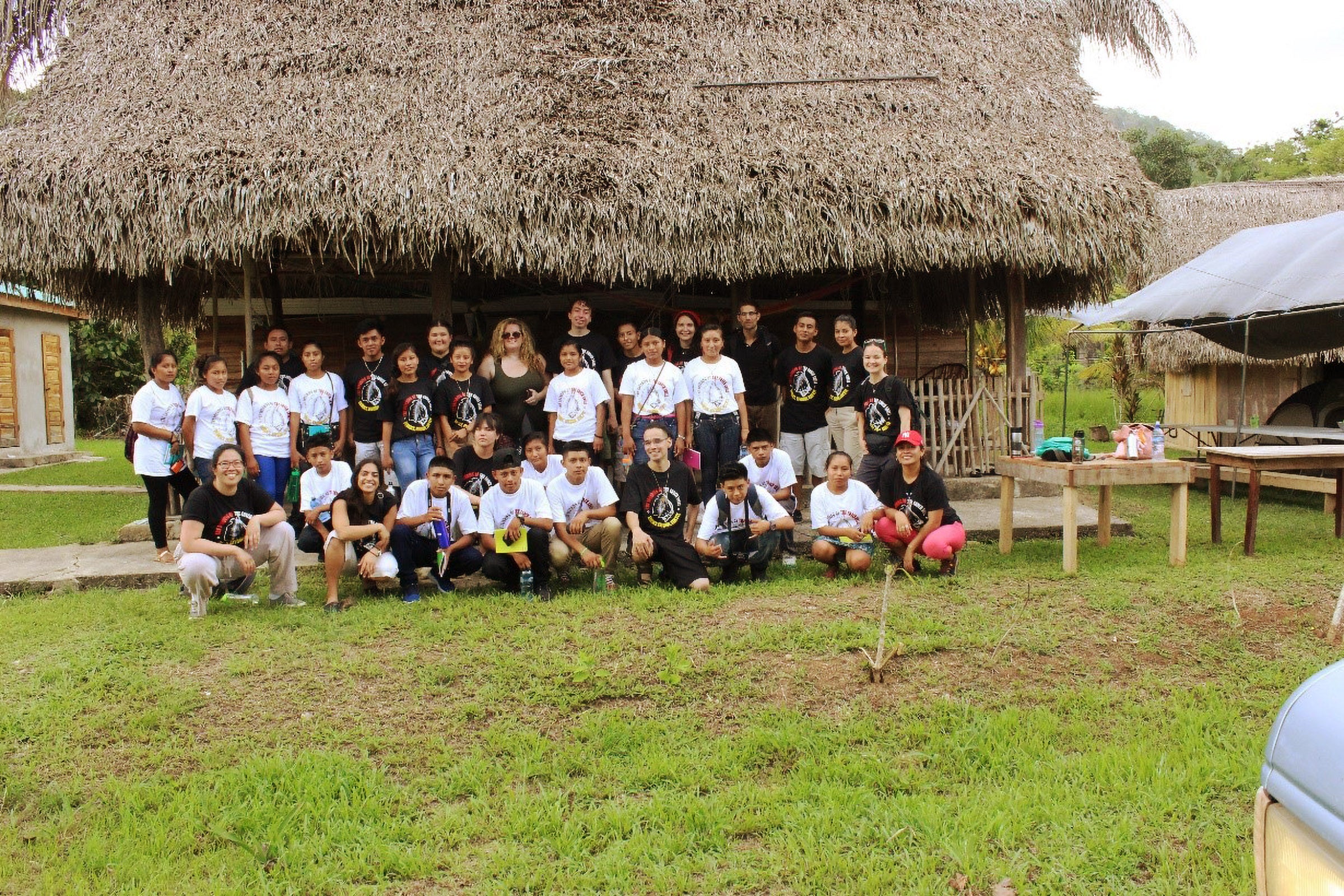
Maya spirituality is of great significance to our culture and is seen as a way to communicate to our ancestors, our spirits. Therefore, it was only fitting that we started off the gathering by asking our ancestors for guidance, protection, and wisdom as we attempt to dream about the future for both our generation and others to come. To set the tone of the camp and open the minds of the Maya youth, keynote presentations were given by Indigenous leaders inclusive of Maya Alcaldes (both male and female), Indigenous rights activists, Maya spiritual leaders, and other associates. Additionally, youth speakers from the Aboriginal Youth Movement of Cree and Anishinaabekwe Nations shared their personal stories of youth organizing and involvement. This triggered the 15 youth to realize the importance of amplifying and centering Indigenous voices, as well as building and supporting one another as part of a youth movement. The week-long camp included field visits to Maya heritage sites and was divided into three key segments: a photovoice project; an arts-based dreaming session; and the conception and development of an action plan that would later be implemented by the Maya youth attendees.
For the photovoice project, the participants were given cameras to capture images across Maya communities throughout Toledo District. The primary aim was to encourage the youth to take photographs of sites, places, and things that resonated with them; in particular, the joys, pains, and dreams they have and experience as both Maya people and as youth. Participants were separated into teams to travel along differing routes and visit numerous Maya communities as a means of assisting them in capturing the stories they would like to share with their peers.
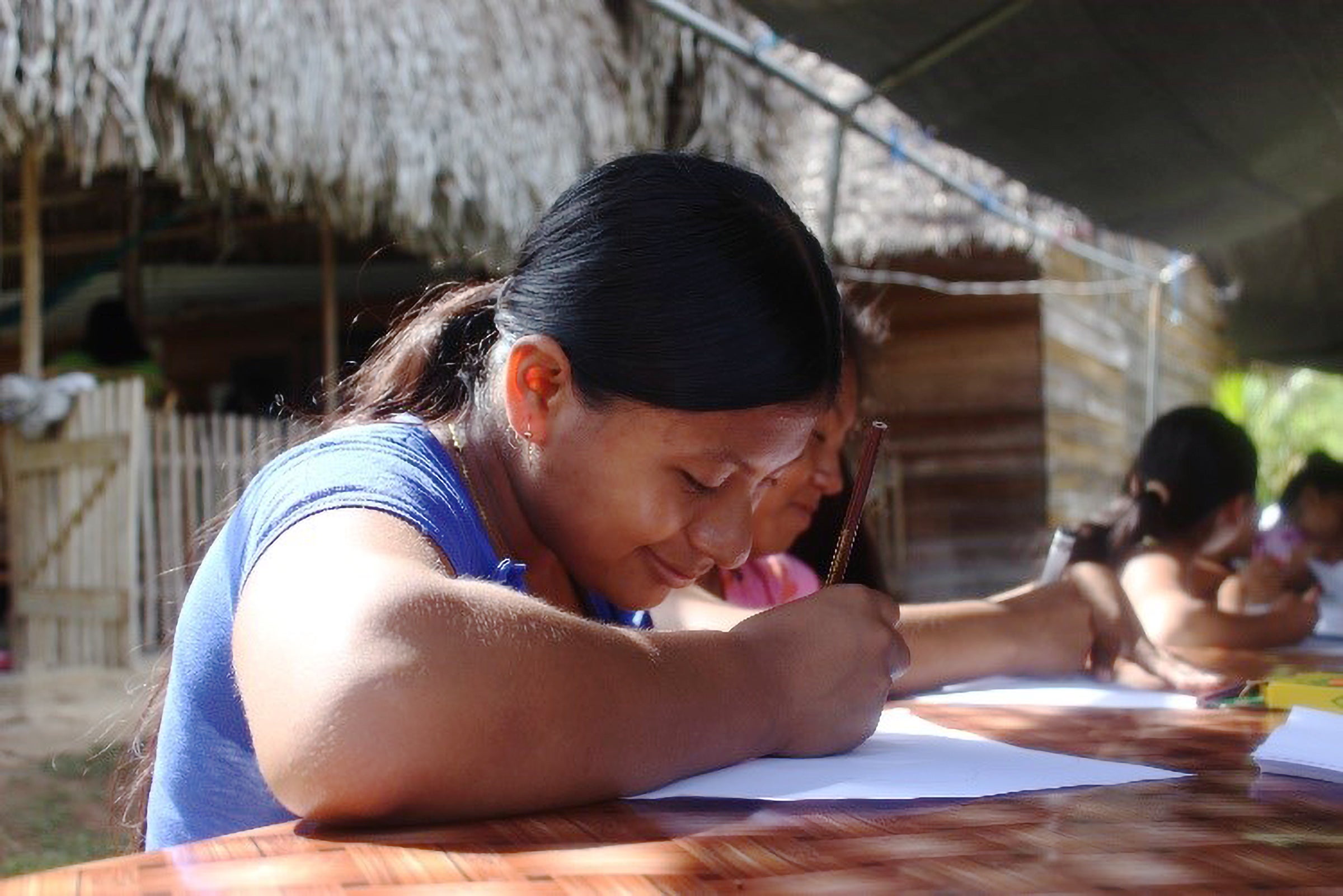
The arts-based “Dreaming of Our Future” exercise was conducted to provide a medium through which Indigenous youth could share their dreams and aspirations. Participants were posed with the question: “Where do you see your community in the next 5 to 10 years?” They were then handed a blank canvas to draw, color, and cast their dreams upon. The dreams shared by the youth throughout the exercise are dreams Maya people have continuously envisioned through our historical struggles to the present day. From the dreaming exercise the youth identified six themes: Maya youth leadership; land; education; gender equality; identity; culture and traditional knowledge; and health. Using these themes as inspiration, the youth developed action points to either enhance their joys or remedy their pains, as well as execute the dreams and activities they intend to carry out in 2020.
The youth were then grouped to initiate conversation on how they could begin to address the concerns pinpointed in the Dreaming exercise. From the six themes identified, they further narrowed down to three that they felt needed the utmost attention: identity, culture, and traditional knowledge; Maya youth leadership; and gender equality. One group felt that the way to build the youth leadership skills of the present Maya youth was for them to collectively learn from their elders. They expressed the need for exemplary leadership in their communities and further stressed the need for the youth to be taught the skills that will make them morally grounded, committed, and full of integrity. They stated that they would like to have another gathering focusing solely on what it takes to be an impeccable traditional leader.
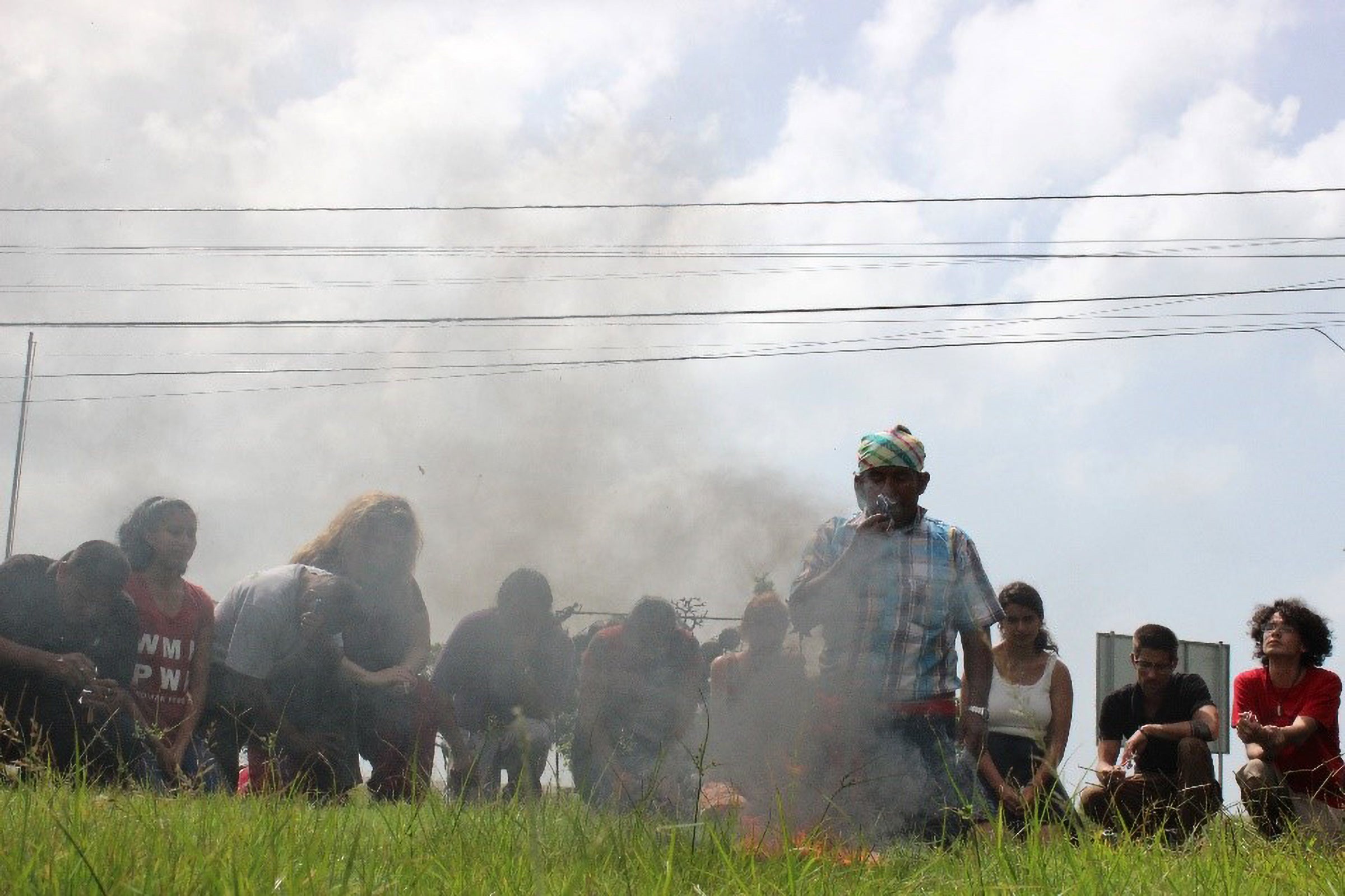
Another group’s action point focused on gender equality and sensitizing the youth on the importance of women in traditional Maya governance. They wish to empower young women to become actively involved in the affairs of their communities and also inform young men on the importance of giving respect to women leaders. A third group reasoned that they could identify elders in their respective communities who they could invite to give them teachings on various traditional practices, ensuring the passing of knowledge from one generation to another. These workshops will be spanned across the year 2020 and will have the youth learning traditional practices and knowledge they may have not had the chance to learn growing up, honoring our ancestors in the process and ensuring that traditional knowledge survives for generations to come.
The closing of the camp was one we especially wanted to resonate with the Toledo Alcaldes Association executives, Maya Leaders Alliance, Julian Cho Society, and Maya elders, who were invited as special guests on the final day. The Toledo Alcaldes Association is the highest arbiter and custodian for Maya customary law. The action plan was presented to demonstrate that the youth have genuine concerns for their communities and are motivated to contribute to the development of peaceful, more united, and resilient Maya communities.
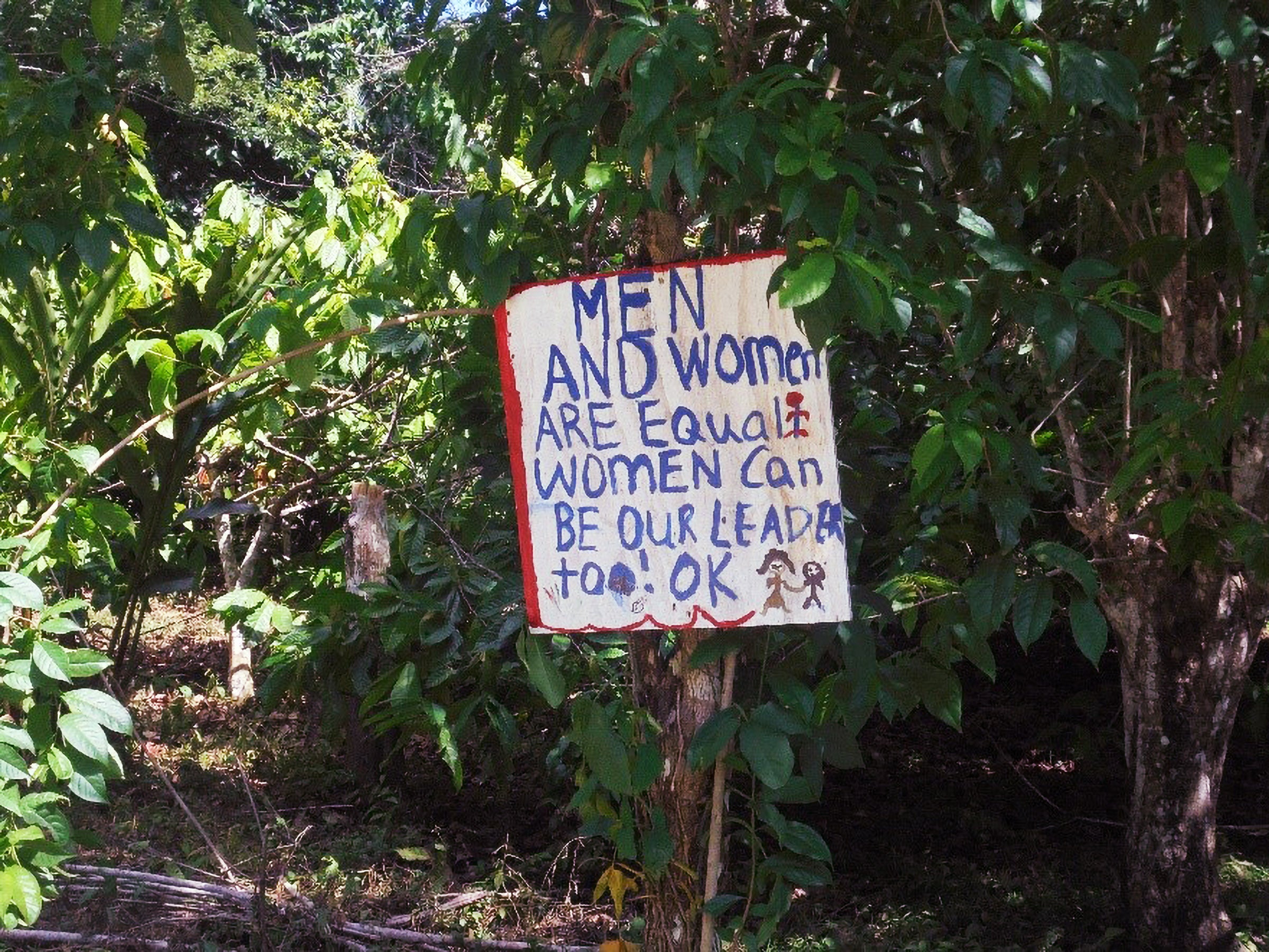
The camp culminated by assembling Maya elders, women, and spiritual healers to listen to the voices of Maya youth. The gathering closed with a traditional Maya ceremony at Nim Li Punit (Maya Temple) to give thanks to the creator and ancestors for their guidance, wisdom, and protection throughout the initial gathering and to ask for their wisdom as we continue our journey.
Progressive work has already begun on calibrating the ideas generated by the 15 youth who attended the camp; holding events developed from the action plan as early as December 2019 and throughout the rest of 2020 are on the Maya youth agenda. Issues related to gender equality, primarily shedding light on women in governance, masculinity, women’s rights, and gender stereotyping, have all been made a priority. Maya youth are scheduled to be present at every Alcaldes Assembly and on the Alcaldes Steering Committee,
as well as for youth to collaborate with the Toledo Alcaldes Association. Youth will also be informed, included, and even contribute to organizing of upcoming projects and workshops related to traditional knowledge and practices.
The Maya youth have spoken. They need to be a part of decision making, even if it is just to be informed about new developments within their communities. They have made their mandate. Maya youth organizers are now pursuing the action plans they developed, willing to collaborate with other Indigenous groups
to create their own version of Sounding of the Conch Shell, and endeavoring to hold an annual camp. The Maya youth organizers are also continuing to actively seek guidance from their mentors at the Julian Cho
Society. As the Maya always say, it is by “Komonil,” or togetherness, that we conquer every challenge
we have—especially colonialism and capitalism.
